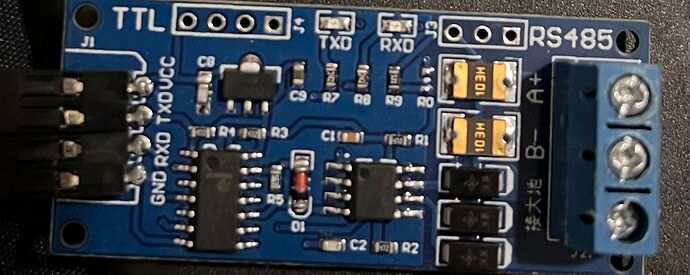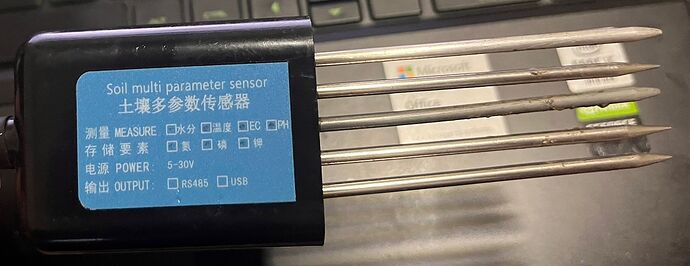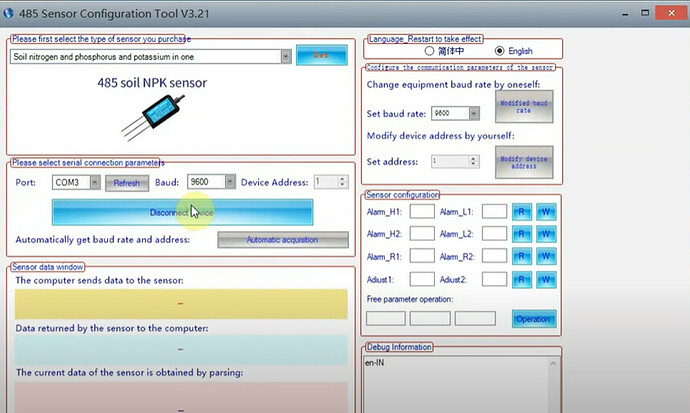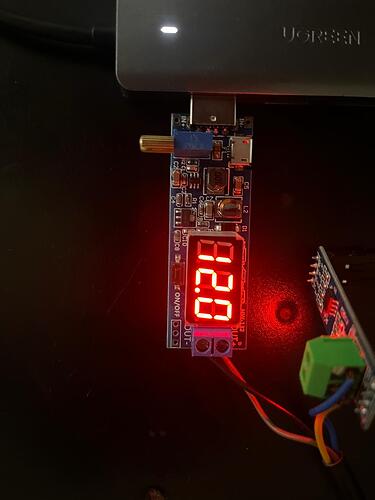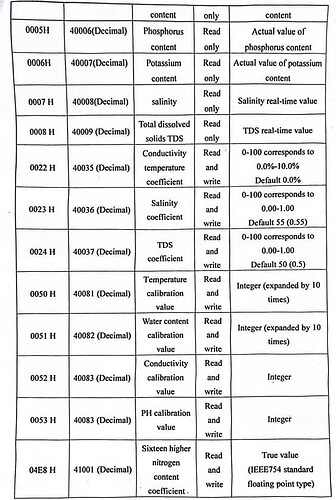nop18
May 19, 2024, 4:58pm
1
Hello guys, can you help me ? i have problem on my NPK sensor. My sensor already can get 4 value from sensor like pH, Temprature, EC, Humidity, but N P K value is not working. This is my code i got from tutorials on youtube.
#include <SoftwareSerial.h>
SoftwareSerial mySerial(4, 3); // RX, TX
void setup() {
Serial.begin(9600);
mySerial.begin(4800);
}
void loop() {
byte queryData[] = {0x01, 0x03, 0x00, 0x00, 0x00, 0x07, 0x08, 0x04};
byte receivedData[19];
mySerial.write(queryData, sizeof(queryData));
delay(1000);
mySerial.flush();
if (mySerial.available() >= sizeof(receivedData)) {
mySerial.readBytes(receivedData, sizeof(receivedData));
unsigned int soilHumidity = (receivedData[3] << 8) | receivedData[4];
unsigned int soilTemperature = (receivedData[5] << 8) | receivedData[6];
unsigned int soilConductivity = (receivedData[7] << 8) | receivedData[8];
unsigned int soilPH = (receivedData[9] << 8) | receivedData[10];
unsigned int nitrogen = (receivedData[11] << 8) | receivedData[12];
unsigned int phosphorus = (receivedData[13] << 8) | receivedData[14];
unsigned int potassium = (receivedData[15] << 8) | receivedData[16];
float kelembapanTanah = (float)soilHumidity / 20.0;
float SuhuTanah = 1.0175*(soilTemperature / 10.0) - 1.1524;
Serial.print("Humidity : ");
Serial.println(soilHumidity);
Serial.print("Temp : ");
Serial.println(SuhuTanah);
Serial.print("EC : ");
Serial.println(soilConductivity);
Serial.print("pH : ");
Serial.println((float)soilPH / 10.0);
Serial.print("N : ");
Serial.println(nitrogen);
Serial.print("P : ");
Serial.println(phosphorus);
Serial.print("K : ");
Serial.println(potassium);
// delay(30000);
}
}
And i use this RS485 :
instead of using the default like this, because i always get 255 value.
previously my npk value always get 0, and now stuck on 32 for n, 88 for p and 104 for k after my friend use Coolterm software. i dont know why.
this is my sensor :
rsmls
May 19, 2024, 5:09pm
2
nop18:
my NPK sensor
AFAIK there's no reliable way to measure NPK with a simple sensor. It requires chemical lab analysis. I wouldn't even bother trying to get this to work; it's a waste of time.
5 Likes
The sensor does not measure N, P or K values. It is not entirely clear what those things do, but you make have a defective fake that cannot even make up numbers.
1 Like
xfpd
May 20, 2024, 3:08pm
4
Verify the sensor, transceiver and Arduino share the ground wire.
2 Likes
Hi @nop18 ,
Welcome to the forum..
nop18:
{0x01, 0x03, 0x00, 0x00, 0x00, 0x07, 0x08, 0x04};
should be..
{0x01, 0x03, 0x00, 0x00, 0x00, 0x07, 0x04, 0x08}
good luck.. ~q
2 Likes
nop18
May 23, 2024, 9:14am
6
Sry guys, just back from college.
nop18
May 23, 2024, 9:15am
7
this is my wiring.
i try to find this app but cant find it.
So i try using Qmodmaster and CoolTerm for checking the address.
nop18
May 23, 2024, 9:17am
8
thanks
Could be the power source if you are indeed powering this sensor using a 9v battery..Check this sketch out..
good luck.. ~q
1 Like
nop18
May 24, 2024, 9:57am
11
I've tried it on 9v, 12v, and 24v but still same. Im using this
and this is my sensor address
i use 0000 until 0006 address.
I use your code and this is my output
1 Like
rsmls
May 24, 2024, 10:57am
12
So? As I said earlier, there's no way a sensor like that can specifically measure N, P or K. It'll produce numbers, but they won't mean anything.
1 Like
Yes, it looks like you are getting proper response back from the sensor..
good luck.. ~q
system
November 20, 2024, 12:29pm
14
This topic was automatically closed 180 days after the last reply. New replies are no longer allowed.

